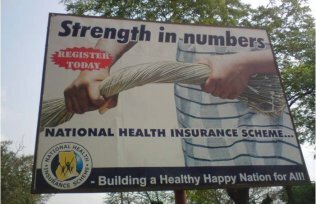copyright (c) 2011 NICHE
Site by websculptures
Sitemap
Reaching the poor in Ghana's National Health Insurance - an empirical analysis
The Government of Ghana has passed a national Health Insurance Act in 2003 to set up mutual health organizations (MHO) in every district in Ghana, and is thereby the first country in Africa to implement MHO nation-wide. However, community participation is low, especially among the poor. Many barriers to enrolment exist in the interplay between communities, MHO and health provider. Moreover, the poor are formally entitled to premium exemptions but very few actually benefit because of implementation problems. This research program aims to design and evaluate interventions to stimulate MHO enrolment, with special focus on the poor.
This project is funded by an Integrated programme grant by NOW / WOTRO, and runs from 2008-2013.
-
Dr. Ernst Spaan
-
Dr. Caroline Jehu-Appiah
-
Dr. Geneveive Aryeetey
-
Dr. Rob Baltussen
-
Prof. Koos van der Velden
Related publications:
- Community concepts of poverty: an application to premium exemptions in Ghana's National Health Insurance Scheme.
- Household perceptions and their implications for enrolment in the National Health Insurance Scheme in Ghana
- Costs, equity, efficiency and feasibility of identifying the poor in Ghana's National Health Insurance Scheme: empirical analysis of various strategies
- Equity aspects of the National Health Insurance Scheme in Ghana: Who is enrolling, who is not and why?
- Efficiency, equity and feasibility of strategies to identify the poor: an application to premium exemptions under national health insurance in Ghana
- Identification of poor households for premium exemptions in Ghana's National Health Insurance Scheme: an empirical analysis of three strategies
